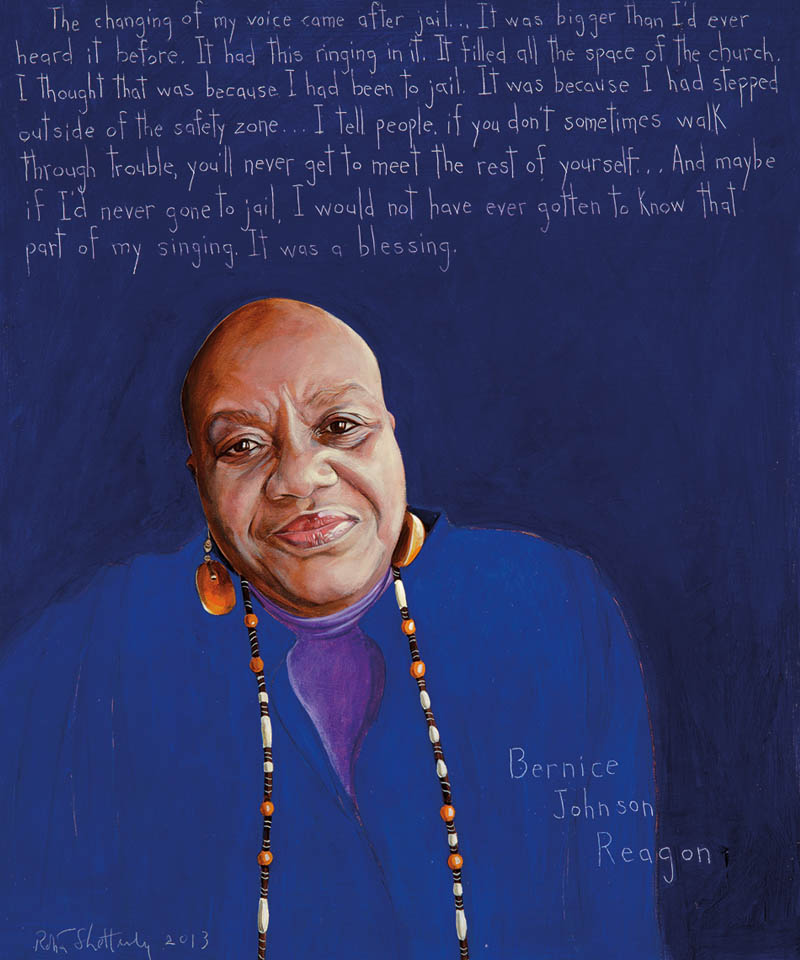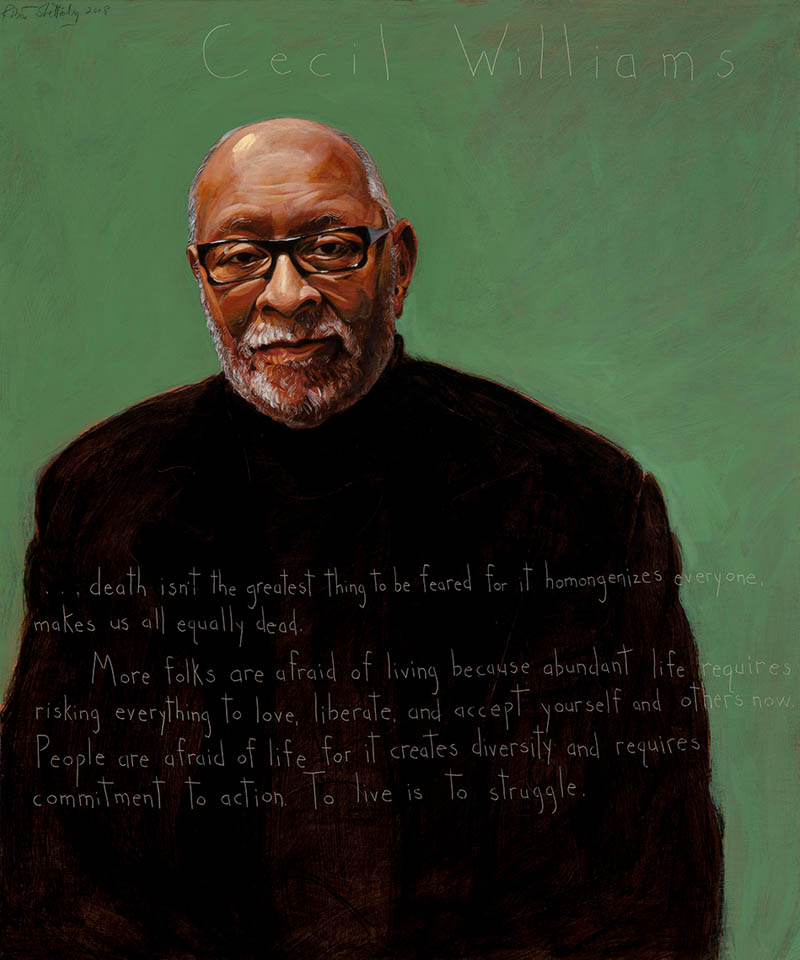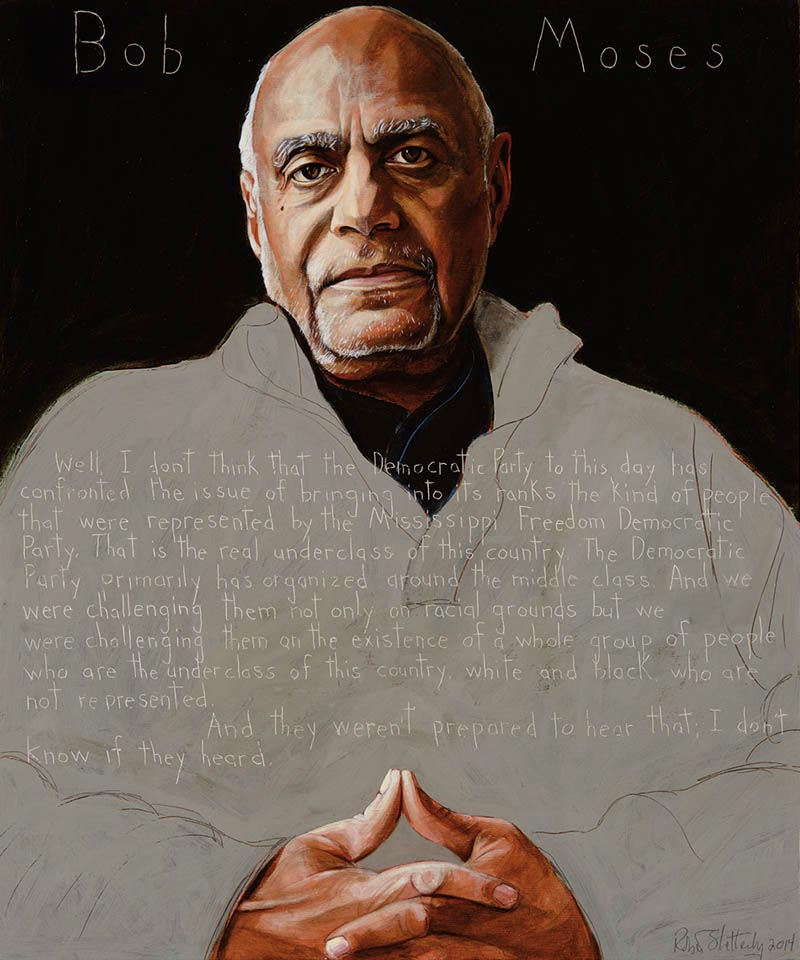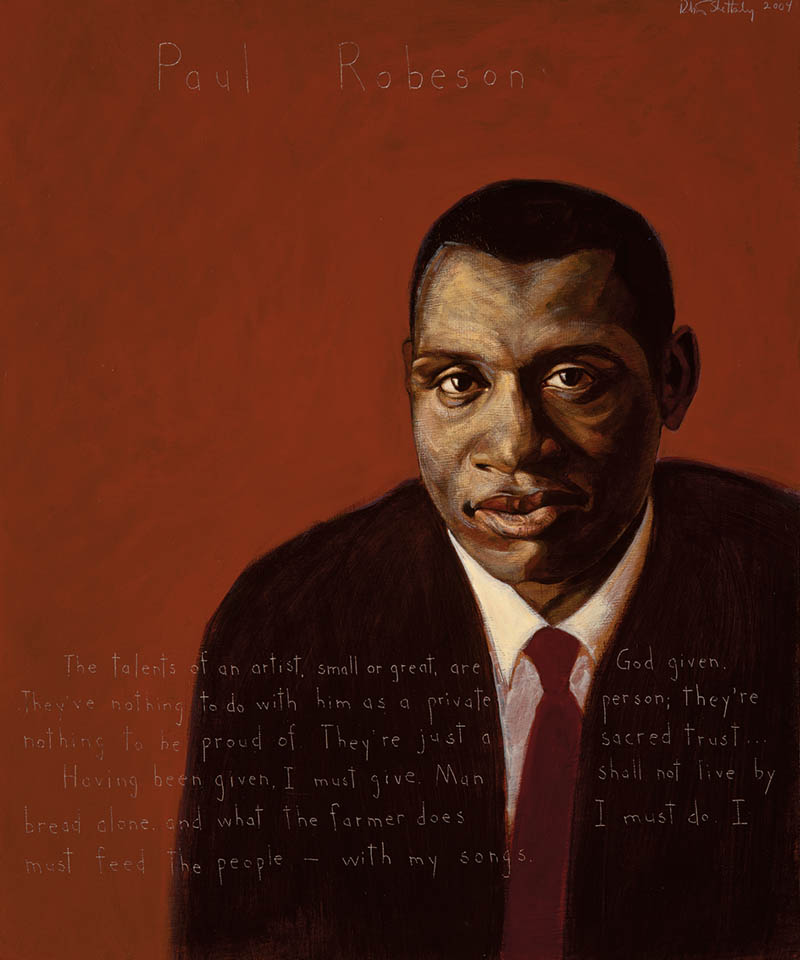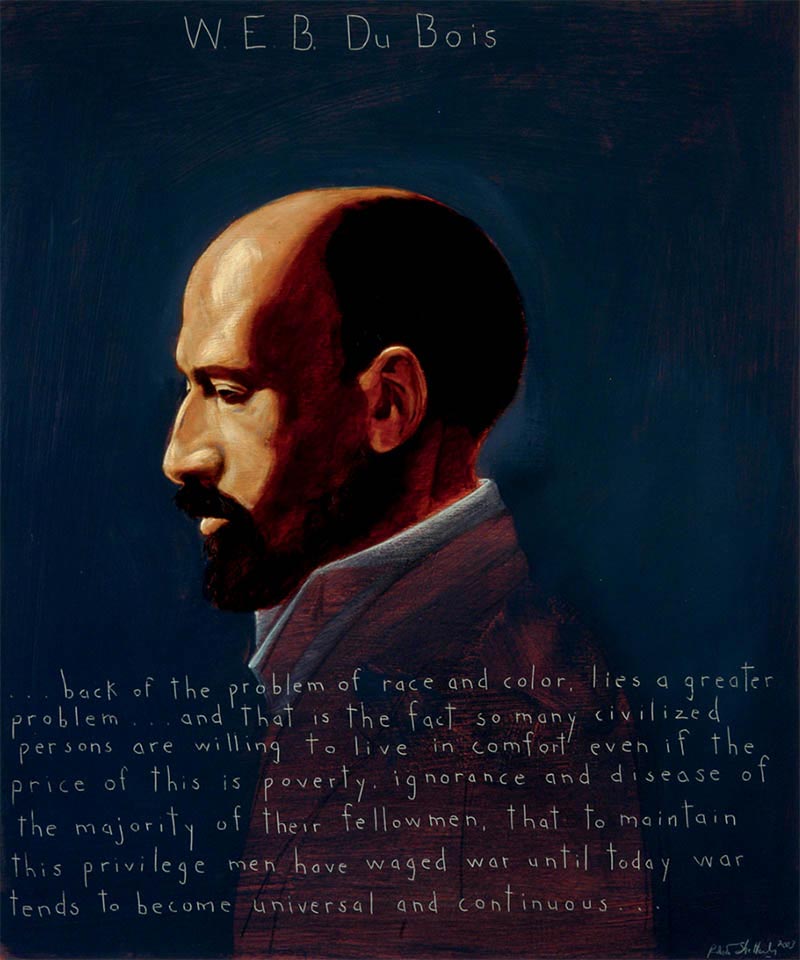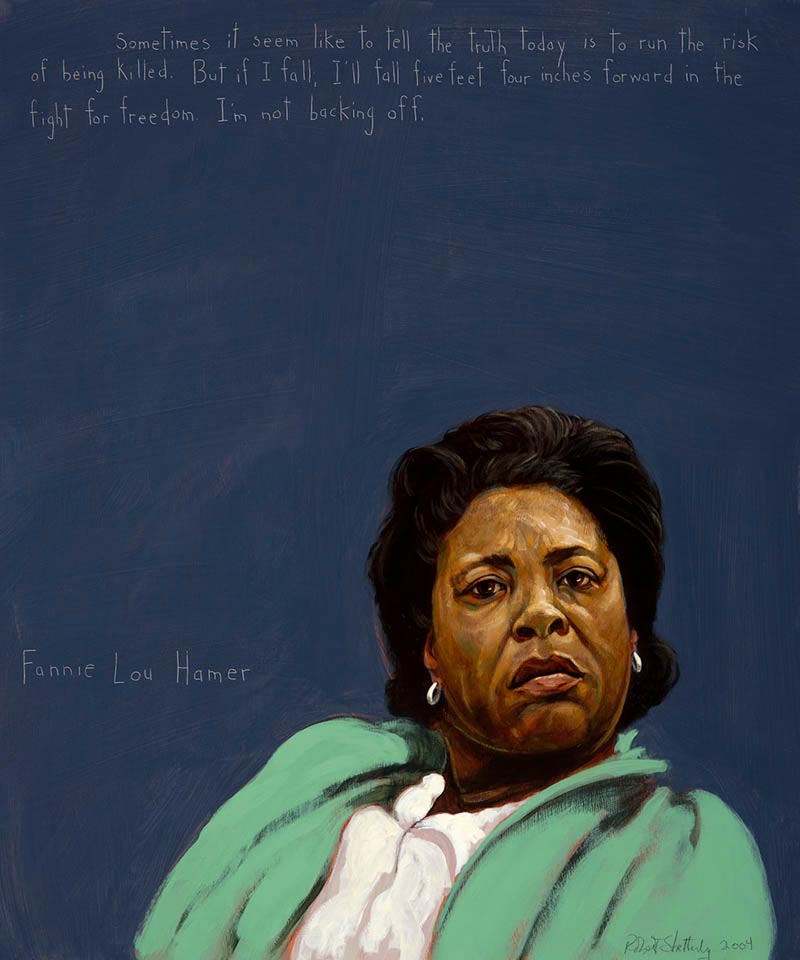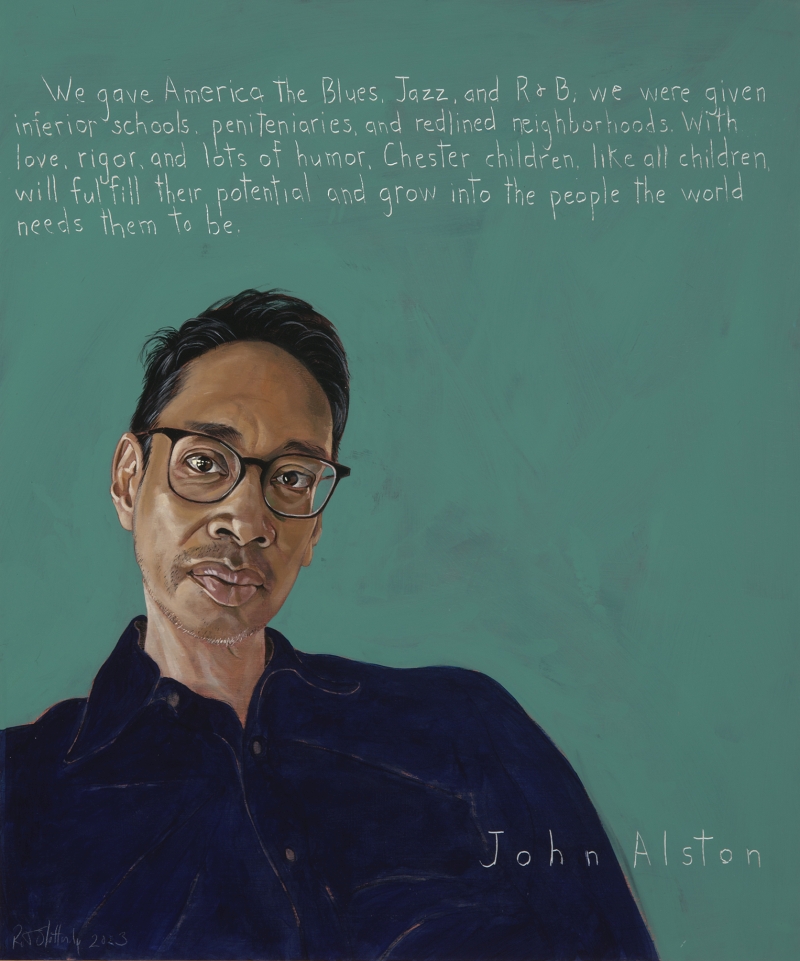
John Alston
Musician, educator; b. 1961
We gave America The Blues, Jazz, and R&B; we were given inferior schools, penitentiaries, and redlined neighborhoods. With love, rigor and lots of humor, Chester children, like all children, will fulfill their potential and grow into the people the world needs them to be.
Biography
Highlight 1
With love, rigor, lots of humor, and a driving passion to “show the world how beautiful our children are,” John Alston has forged an antidote to the social and economic injustice that has damaged the African-American community of Chester, Pennsylvania. Alston, the founder and artistic director of the Chester Children’s Chorus (CCC), believes that, “by giving our children the tools to perform at the highest level, the world opens for them and their entire community.” Mostly he wants the children to know that they matter.
John Alston was born in Newark, New Jersey, to a Filipino immigrant mother and an African-American father. Home life was difficult for John and his brother, as his father was a mostly absent, troubled alcoholic and his mother worked nights as a nurse to support her sons. A shy, biracial boy in a mostly Black neighborhood, Alston felt like an outsider and became more of an observer rather than a participant in neighborhood activities.
Alston’s world came alive in the sixth grade when he auditioned for the Newark Boys Chorus School, a tuition-free school offering rigorous musical and academic instruction. Alston was bussed each day to the Forest Hill section of Newark where the boys studied music three hours a day in addition to regular academic courses. He was quick to learn to read music and immediately fell in love with Bach and classical music. Alston’s world view grew even broader in the summer of 1973, when the Chorus performed with Leonard Bernstein for Pope Paul VI at the Vatican. By that fall, he knew he wanted to be a professional musician. In his own words, “It felt too good; it made too much sense. It was the first time I knew that I was really good at something. Making music was absolutely right for me.” Alston went on to study music in college, eventually earning a Doctorate of Music in Choral Conducting with a minor in Jazz Studies from Indiana University Bloomington.
In 1991, Alston joined the Swarthmore College faculty as an Associate Professor of Music. The elite, liberal arts college is located in an affluent, mostly white, Philadelphia suburb that boasts highly rated public schools and high achieving students. At its border lies Chester, a city of 33,000. According to the 2020 Census, 75% of Chester’s residents identify as Black and close to 30% of its citizens live in poverty. Chester evolved from a small town with wooden shipbuilding and textile factories into a wealthy manufacturing center producing ships for two World Wars and consumer goods. During the mid-twentieth century, with the exodus of its manufacturing base and over a half of its residents, it devolved into a post-industrial city struggling with poverty, violent crime, and a failing school system that is rated among the lowest in the nation.
It was at Swarthmore that a young, passionate, and resolute Alston took on a challenge that would define his life’s mission and change the trajectory of thousands of young lives. In 1994, he came upon the notion that he could recreate his Newark Boys Chorus experience with a few boys from Chester. Alston introduced his plan to Swarthmore College administrators who loved the idea, and the College’s generous support of facilities and staff became instrumental to CCC’s growth.
The College connected Alston with the principal of a Chester elementary school and the Chester Boys Chorus was launched with seven boys. Each day, Alston picked them up after school to rehearse on campus. He admits he didn’t know anything about teaching children. He had no curriculum and didn’t know how he was going to help them learn to read music. He began by teaching them the few folk songs he knew. He recalls, “We loved each other immediately. We recognized each other’s sorrows, humor, and stories. All but one of us were raised by single mothers. We sounded horrible, but boy did we have fun.” Three years later, two older sisters who were hanging out at rehearsals began practicing with the boys. Soon Alston began auditioning girls and the coed chorus really took off. A decade later, 60 boys and girls,ages 8 to 18, were performing the “Hallelujah Chorus” and Michael Jackson’s “Thriller” superbly and joyously.
In 2013, Alston resigned his position as a Swarthmore professor to focus entirely on expanding the CCC into a first-rate musical and academic program. Alston admits that initially he didn’t understand the impact of the injustice that damaged Chester or what the children’s lives were really about. At first, he didn’t understand what his job truly needed to be. “But now I am absolutely certain why I was put here on earth,” he says. Alston strives to turn his anger, rage and sorrow for what he sees in Chester into empathy and productivity. He has created a space where the children are safe, comfortable and loved. It’s a place where they develop the skills and confidence to “cross bridges that we build for them,” so they can eventually build bridges for themselves and others. It is an environment where the children develop the confidence and cultural fluency to thrive in a world beyond Chester and gives them the support and tools to fulfill their potential.
Today the CCC provides a strong, year-round musical artistic experience and an intensive math program for more than 100 children.They learn to love and sing Mozart’s “Requiem,” The Beatles, the best of R&B and even Country. With a small army of Swarthmore College student tutors, the children concentrate on developing math skills as much as they rehearse. Recent math assessments show that the children are advancing two math levels with one year of tutoring in the math concepts practiced at CCC. During the summers, they learn music and math, study science with College staff and students, read and dance, and play and grow in the Chorus’s Summer Learning Program. As the Chorus celebrates its 30th anniversary in 2024, scores of alumni identify the CCC as the anchor for their future accomplishments.
“Yet,” Alston emphasizes, “there is so much more that our children need to fulfill their potential. Could we have a language arts and sports component and have the children attending the program more than two days a week? We don’t know yet, but we are obliged to try.” His rage and sorrow are intensified by the realization that America has the resources to build what all its children need, but refuses to do so.
Still Alston harbors no doubt that when the children bring down the house performing both Queen’s “Bohemian Rhapsody” and Handel’s “Messiah” at the highest levels, the audience can see that the children have everything they need to be the best versions of themselves. He wants the children to be part of the America that loves the music of Carole King, John Denver, Mozart, and James Brown, and to understand that it’s all good music, just different. He remains hopeful: “When people see our children singing music that ‘doesn’t belong to them,’ perhaps more people will realize that creating groups based on the color of one’s skin is silly; that children, when given the opportunity and guidance, are perfectly capable of developing fluency in other styles and cultures while loving their own.”
-authored by Lynn Gonzalez
Related Portraits
Programs
Americans Who Tell the Truth (AWTT) offers a variety of ways to engage with its portraits and portrait subjects. Host an exhibit, use our free lesson plans and educational programs, or engage with a member of the AWTT team or portrait subjects.

Education
AWTT has educational materials and lesson plans that ask students to grapple with truth, justice, and freedom.

Exhibits & Community Engagement
AWTT encourages community engagement programs and exhibits accompanied by public events that stimulate dialogue around citizenship, education, and activism.
